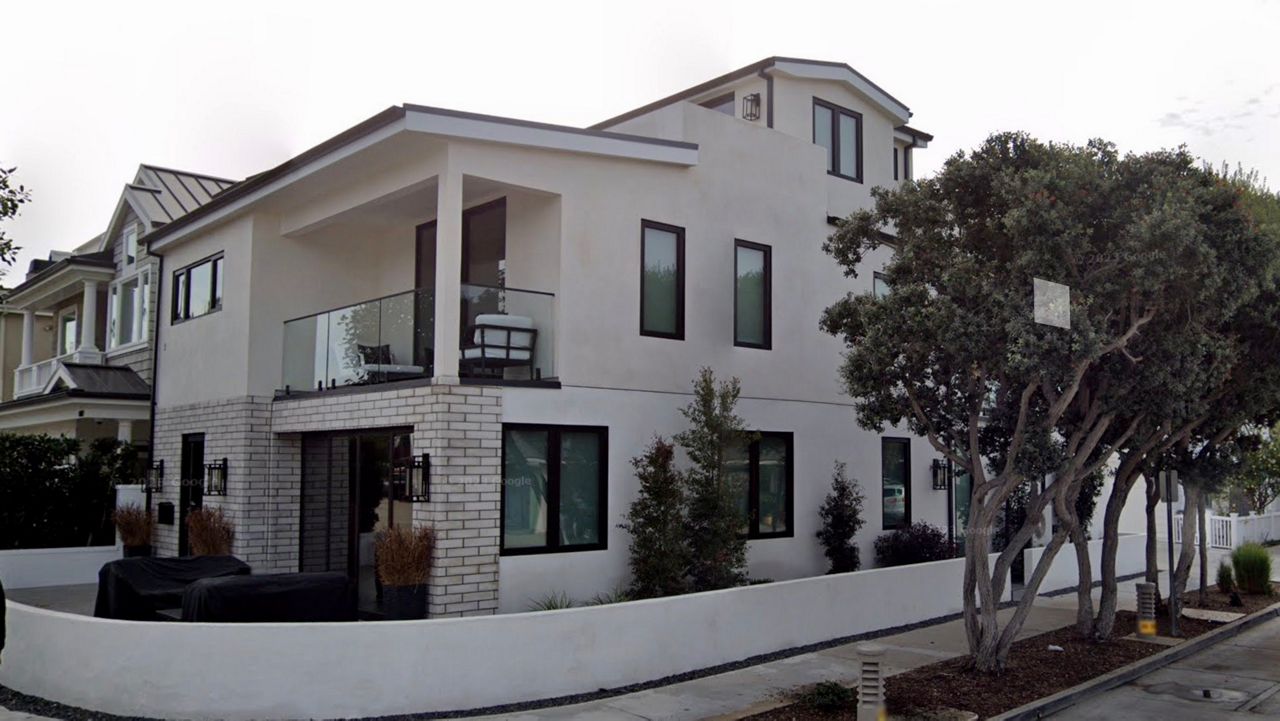NEWPORT BEACH, Calif. — The Newport Beach City Council appears to be cracking down on a growing homeownership trend one councilman describes as "the commercialization of our neighborhood."
The City Council on Tuesday instructed the city's planning department to create an ordinance defining and regulating fractional interest home ownership as a form of a timeshare, which the city prohibits in residential neighborhoods.
"Allowing fractional ownership, home ownership as its being used today, is an improper use of land planning," said Joe Stapleton, a Newport Beach City Council member who represents District 1, the peninsula area of the city. "It creates a camouflage of timeshare in areas that are not zoned or currently permitted."
Fractional interest ownership allows multiple owners or investors to purchase a home and use it for a set arranged period, varying on their percentage of ownership.
The trend, although not new, has picked up in recent years as the high barrier and cost of purchasing usually a home has escalated.
Newport Beach residents' ire is directed at San Francisco-based Pacaso.
The company has been purchasing single-family homes in wealthy areas like Newport Beach, upgrading and selling a one-eighth stake to interested individuals or families looking for a second or vacation home.
Pacaso brokers the sale of the property and later manages it.
Pacaso sells one-eighth to one-half of homes in locations such as Jackson in Wyoming, Malibu, Napa and Nantucket on its website. One-eighth of a home in Fort Lauderdale, Florida, can go for $395,000 to $2.8 million in Aspen, Colorado.
Fractional ownership, proponents say, allows individuals or families to purchase or co-own a second or vacation home and use it part-time without having the full responsibility of overseeing the house throughout the year.
"It is not a timeshare. It is not a transient thing. We own it," said fractional owner Randy Coste, a Bay Area resident who spent more than $1 million for a share of a home in Balboa Island. "This commitment to the community and the money we spent creates a sense of ownership and pride in the home and pride in the community."
"It's not a small investment," Randy, who co-owns the property with seven others, told the City Council. "We are not coming in for a weekend and throwing a big party. It's our home, and we live there."
However, many residents in the city spoke against the new type of fractional ownership, comparing it to a hotel or short-term rentals. During the one-hour public comment period, many residents said the temporary dwellers would increase traffic, lead to parking issues and harm neighborhoods.
"Pacaso turns established homes into virtual hotels except without paying transient occupancy tax like other short-term lodgings," resident Jim Miller said. "It's destroying our community-friendly neighborhoods."
Councilman Stapleton said fractional ownership homes take much needed residential housing off the market.
"I'm all about the next generation having the ability to purchase a home," he said. "I'm afraid that if this fractional homeownership continues, we will see oceanfront properties and other properties come off the market maybe forever."
The issue in Newport Beach comes as many cities have begun cracking down on fractional ownership.
Sonoma News reported that Sonoma banned timeshares and fractional interest home uses in January.
The following month, the Carmel City Council voted unanimously to prohibit fractional interest ownership and its advertising.
Beverly Hills and other cities are grappling with the issue as well. Many residents compare Pacaso and competing companies with a similar model to a timeshare.
"Pacaso is not a timeshare," a Pacaso spokesperson wrote in an email Thursday to Spectrum News. "We help families co-own second homes, an established practice in Newport Beach and around the country."
The spokesperson said co-ownership is a common practice among friends, families and individuals to own real estate for generations and that Pacaso owners are "no different."
"It is important that property rights are protected for all residents in the city, full-time and part-time," the statement read. "Pacaso will continue to engage with city officials to help them correctly understand our model and how co-ownership can benefit the community."
Pacaso does not own the home and serves only as a property manager for the new owners, the Pacaso official said. On average, six families own the home and visit frequently.
Newport Beach city staff said at least 11 known homes are fractionally owned. Of that 11, Pacaso has nine in the city. The city has been grappling with the issue for the past two years.
According to a city staff report, the planning commission would broaden the definition of timeshare to include fractional homeownership and ban it in residential zoning districts. Another option is to cap the number of homes allowed and create other regulatory frameworks.
The City Council and California Coastal Commission must review and vote on the amended ordinance.



